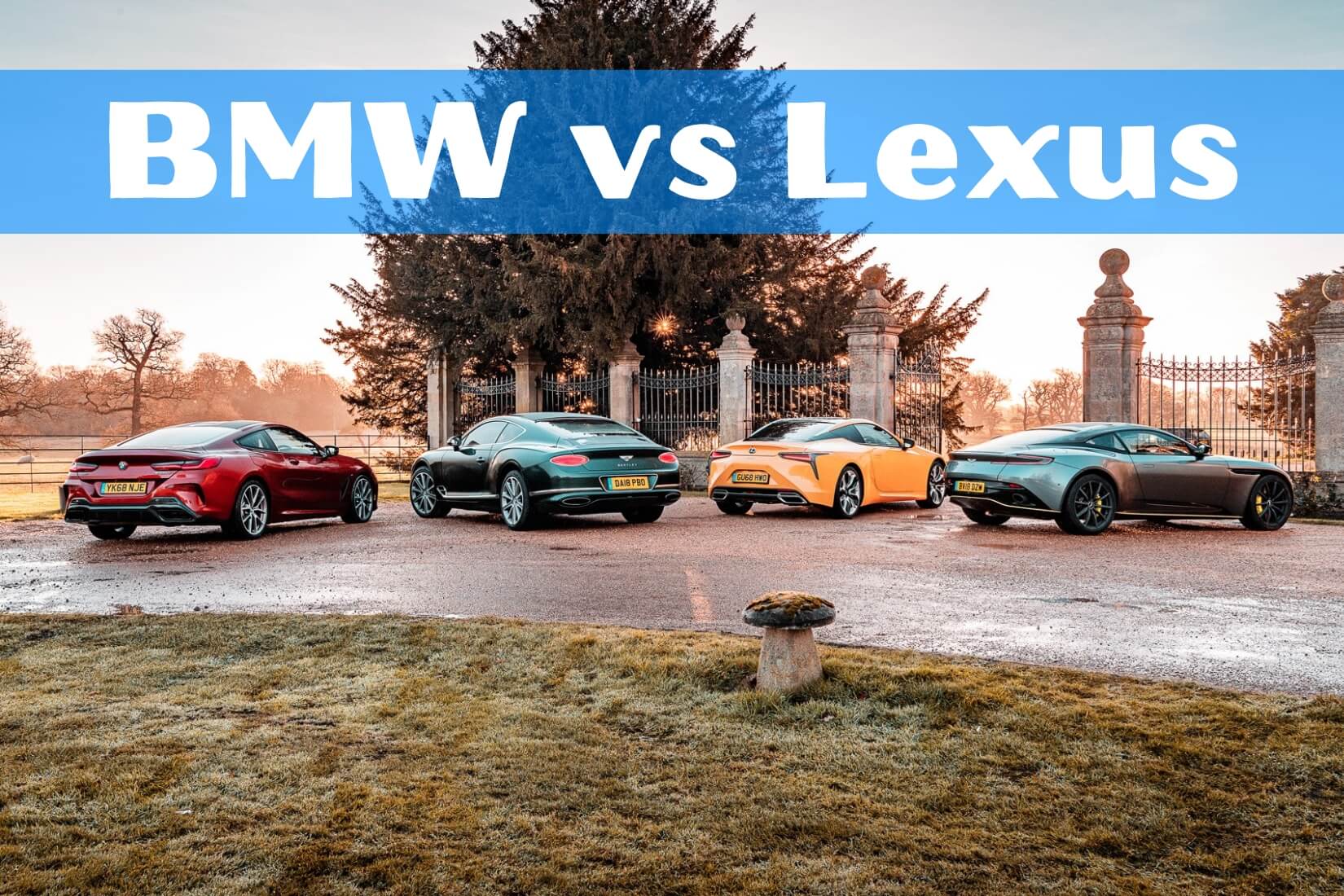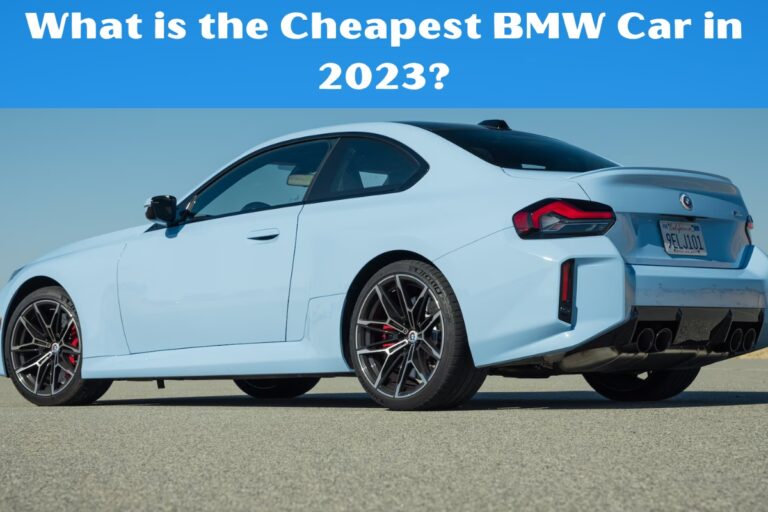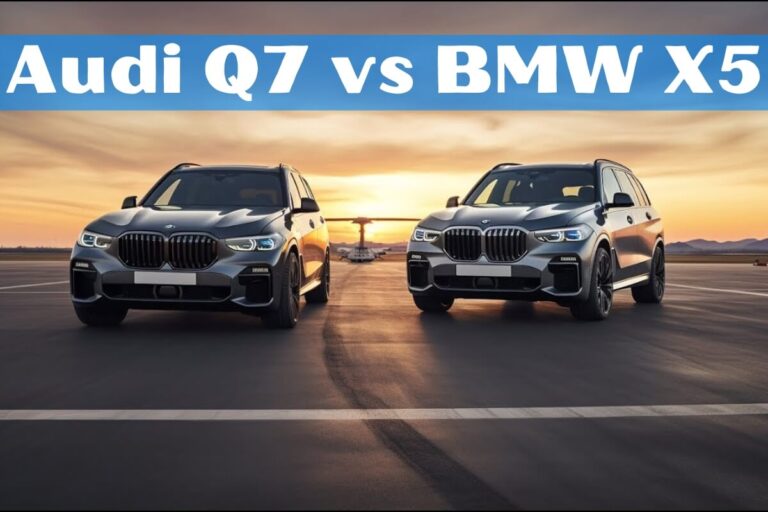BMW vs Lexus: The Ultimate Comparison

When it comes to luxury vehicles, few brands command as much respect and admiration as BMW and Lexus. These automotive giants have carved out a niche for themselves, offering a perfect blend of performance, comfort, and cutting-edge technology. Whether you’re a driving enthusiast or simply someone who appreciates the finer things in life, the choice between a BMW and a Lexus can be a tough one.
Get ready to compare two luxury car giants! We’ll examine the pros and cons of BMW and Mercedes-Benz, giving you a clear picture of what to expect from each brand.
The main questions we’ll aim to answer are:
How do BMW and Lexus compare in terms of performance, reliability, comfort, safety, and overall value? Which brand is better suited for your specific needs and preferences?
Throughout this article, we’ll cover:
- Performance: Unleashing the Power on the Road
- Reliability and Ownership Costs
- Interior Comfort and Luxury Appointments
- Safety and Driver Assistance Technologies
- Styling and Exterior Design
- Model Lineup and Trim Levels
So, let’s dive in and explore the world of BMW vs Lexus.
Performance: Unleashing the Power on the Road
When it comes to performance, both BMW and Lexus have a lot to offer, but their approaches differ significantly.
BMW’s Performance-Oriented Heritage
BMW has built a reputation for being the “Ultimate Driving Machine.” The brand’s performance-oriented heritage is evident in its wide range of engine options, from turbocharged four-cylinders to powerful V8s. Many BMW models, such as the M series, are designed with a focus on driving dynamics and pure adrenaline-pumping performance.
Whether you’re carving through twisty mountain roads or merging onto the highway, BMWs offer a thrilling driving experience. Their rear-wheel-drive architecture and finely-tuned suspensions provide excellent handling and agility. Additionally, BMW’s xDrive all-wheel-drive system ensures optimal traction and control, even in less-than-ideal conditions.
Lexus’s Focus on Hybrid Technology
While BMW prioritizes outright performance, Lexus has taken a different approach, emphasizing hybrid technology and fuel efficiency. Lexus was one of the first luxury automakers to embrace hybrid powertrains, and their vehicles are known for their smooth, quiet, and eco-friendly operation.
Lexus hybrids, such as the RX and ES, combine gasoline engines with electric motors, delivering impressive fuel economy without sacrificing performance. The brand’s advanced hybrid systems provide instant torque and seamless acceleration, making them surprisingly fun to drive, especially in city environments.
Acceleration and Top Speed
When it comes to pure acceleration and top speed, BMW often has the edge over Lexus. BMWs like the M5 and M8 can go from 0 to 60 mph in well under 4 seconds, while their top speeds can exceed 180 mph. Lexus’s performance-oriented models, such as the LC 500 and the new Lexus RX 500h F Sport, offer impressive acceleration, but they can’t quite match the sheer brutality of BMW’s high-performance offerings.
Handling and Driving Dynamics
In terms of handling and driving dynamics, BMW’s focus on performance shines through. The brand’s vehicles are renowned for their precise steering, excellent body control, and overall agility. Whether you’re tackling twisty backroads or navigating tight city streets, BMWs feel planted and responsive, providing an engaging and exhilarating driving experience.
Lexus, on the other hand, prioritizes comfort and refinement over outright sportiness. While Lexus vehicles handle well and offer a comfortable ride, they tend to favor a more relaxed and composed driving experience, making them better suited for long-distance cruising and daily commuting.
Reliability and Ownership Costs
When it comes to reliability and ownership costs, both BMW and Lexus have a lot to offer, but there are some notable differences.
J.D. Power Ratings and Dependability Studies
J.D. Power is a respected authority in the automotive industry, and their ratings and dependability studies are often used as a benchmark for reliability. In recent years, Lexus has consistently ranked among the top brands in J.D. Power’s Vehicle Dependability Study (VDS), which measures problems experienced by original owners of three-year-old vehicles.
BMW, on the other hand, has had a more mixed performance in these studies, sometimes ranking above or below the industry average. However, it’s important to note that both brands are well-represented in the premium vehicle segment, which typically scores higher than non-premium brands in terms of overall dependability.
Comparing Warranty Coverage and Maintenance Costs
Both BMW and Lexus offer competitive warranty coverage and maintenance plans for their vehicles.
BMW provides a 4-year/50,000-mile basic warranty and a 4-year/50,000-mile powertrain warranty. Additionally, BMW offers complimentary scheduled maintenance for the first 3 years or 36,000 miles, helping to keep ownership costs in check.
Lexus, on the other hand, offers a 4-year/50,000-mile basic warranty, but their powertrain warranty is slightly longer at 6 years or 70,000 miles. Lexus also provides complimentary scheduled maintenance for the first 2 years or 20,000 miles, which is less comprehensive than BMW’s offering.
When it comes to maintenance costs, Lexus generally has an advantage over BMW. According to various studies and owner reports, Lexus vehicles tend to be more affordable to maintain and repair over the long run, thanks in part to their reputation for reliability and the use of more conventional, tried-and-true components.
Resale Value and Long-Term Ownership Expenses
Both BMW and Lexus vehicles tend to hold their value well in the used car market, but Lexus often has an edge in terms of resale value.
Kelley Blue Book, a trusted authority on vehicle pricing, consistently ranks Lexus among the top brands for resale value. This means that Lexus owners can expect to recoup a larger portion of their initial investment when it’s time to sell or trade in their vehicle.
Additionally, Lexus vehicles tend to have lower long-term ownership costs compared to BMWs. This is due to a combination of factors, including lower maintenance costs, better fuel efficiency (especially with hybrid models), and higher resale values.
BMW’s Reliability and Cost of Ownership
While BMW has made strides in improving reliability in recent years, the brand still faces some challenges in this area. BMWs are often criticized for their higher-than-average maintenance costs, especially as the vehicles age and more complex repairs become necessary.
However, it’s worth noting that proper maintenance and care can go a long way in ensuring the longevity and reliability of a BMW. Additionally, the brand’s advanced engineering and performance-oriented components may contribute to higher ownership costs, but they also deliver a driving experience that many enthusiasts find well worth the investment.
Lexus’s Reputation for Reliability and Affordability
Lexus’s reputation for reliability and affordability is well-deserved. The brand has consistently ranked among the top performers in dependability studies, and Lexus owners often report fewer issues and lower maintenance costs compared to other luxury brands.
Furthermore, Lexus’s focus on hybrid technology and fuel efficiency can result in significant cost savings over the long run. Hybrid models, such as the RX and ES, offer impressive fuel economy without sacrificing performance, helping to offset some of the higher upfront costs associated with luxury vehicles.
Overall, Lexus’s commitment to reliability, combined with its affordable maintenance and ownership costs, make it an attractive choice for those seeking a luxury vehicle that won’t break the bank in the long run.
Interior Comfort and Luxury Appointments
Luxury isn’t just about performance and reliability; it’s also about the overall experience, and that’s where interior comfort and luxury appointments come into play.
BMW’s Interior Experience
BMW interiors are designed with a focus on driver-centric ergonomics and a sporty, sophisticated aesthetic. The brand’s cabins feature high-quality materials, such as leather upholstery and brushed aluminum accents, creating a premium and upscale ambiance.
One of the standout features of BMW interiors is the iDrive infotainment system, which has become increasingly user-friendly and intuitive over the years. The system integrates seamlessly with the digital instrument cluster, providing a cohesive and modern experience.
While BMW interiors are comfortable and well-appointed, they do tend to prioritize a more minimalist and driver-focused design approach. This means that rear passenger space can sometimes feel a bit tight, especially in the brand’s smaller models.
Lexus’s Approach to Luxury and Comfort
Lexus has a different philosophy when it comes to interior design, prioritizing comfort and luxury over sportiness. Lexus cabins are designed to be sanctuaries of tranquility, with meticulous attention paid to every detail that contributes to a serene and relaxing driving experience.
The use of high-quality materials is a hallmark of Lexus interiors. Supple leathers, genuine wood trims, and soft-touch surfaces abound, creating an atmosphere of opulence and sophistication. The seats are engineered to provide exceptional comfort and support, with multi-way power adjustments and available features like heating, ventilation, and massage functions.
Lexus also places a strong emphasis on noise insulation, employing advanced soundproofing techniques to minimize exterior noise intrusion. This quiet cabin ambiance enhances the overall sense of serenity and allows passengers to enjoy the premium audio systems without distraction.
In addition to the focus on comfort, Lexus interiors are designed with a keen eye for aesthetics. The layouts are clean and uncluttered, with a minimalist approach that prioritizes simplicity and elegance. High-tech features, such as intuitive infotainment systems and advanced driver-assistance technologies, are seamlessly integrated into the cabin, ensuring a harmonious blend of luxury and modern convenience.
Lexus’s Commitment to Safety
Safety has always been a top priority for Lexus, and the brand has consistently pushed the boundaries of innovation in this realm. Lexus vehicles are equipped with a comprehensive suite of advanced safety features, including cutting-edge driver-assistance technologies and robust structural engineering.
One of the hallmarks of Lexus’s safety approach is its commitment to preventative safety measures. The brand’s vehicles are designed with advanced sensor systems that can detect potential hazards and alert the driver or even take corrective action if necessary. Features like Pre-Collision System with Pedestrian Detection, Lane Departure Alert with Steering Assist, and Dynamic Radar Cruise Control help mitigate the risk of accidents and enhance overall situational awareness.
In the event of a collision, Lexus vehicles are engineered to provide exceptional occupant protection. The use of high-strength steel and specialized crumple zones help dissipate impact forces, while advanced airbag systems and safety cell construction work together to create a protective cocoon around passengers.
Lexus’s dedication to safety extends beyond the physical aspects of vehicle design. The brand also places a strong emphasis on educating drivers about safe driving practices and promoting responsible behavior on the road.
Lexus’s Environmental Initiatives
As a luxury automaker, Lexus recognizes its responsibility to address environmental concerns and minimize its ecological footprint. The brand has taken a multifaceted approach to sustainability, focusing on reducing emissions, improving fuel efficiency, and exploring innovative alternative fuel sources.
One of Lexus’s most significant environmental initiatives is its commitment to electrification. The brand has embraced hybrid technology, offering a range of hybrid models that combine gasoline engines with electric motors for improved fuel efficiency and reduced emissions. Lexus’s flagship hybrid, the LS 600h L, boasts an impressive combination of power and eco-friendliness, showcasing the brand’s ability to deliver luxury without compromising on environmental responsibility.
In addition to hybrid models, Lexus is actively exploring other alternative fuel sources, such as hydrogen fuel cells and fully electric powertrains. The brand’s commitment to innovation in this area underscores its dedication to developing sustainable mobility solutions for the future.
Beyond its vehicle offerings, Lexus has implemented various eco-friendly practices throughout its manufacturing processes and corporate operations. This includes measures such as reducing waste, increasing recycling efforts, and minimizing the environmental impact of its facilities through efficient energy management and the use of renewable resources.
Final Thoughts
Lexus has consistently demonstrated its commitment to delivering an exceptional luxury experience that combines uncompromising quality, cutting-edge technology, and a dedication to environmental responsibility. With its focus on comfort, safety, and sustainability, Lexus continues to set the standard for luxury automotive excellence.
Through its pursuit of innovation and its unwavering attention to detail, Lexus has earned a reputation as a brand that not only meets but exceeds the expectations of its discerning clientele. Whether it’s the serene and opulent cabin environments, the advanced safety features, or the commitment to reducing environmental impact, Lexus vehicles represent the pinnacle of luxury and sophistication.
As the automotive industry continues to evolve, Lexus remains poised to lead the way, pushing boundaries and redefining what it means to provide a truly exceptional driving experience. With a firm commitment to its core values and a constant drive for improvement, Lexus is well-positioned to maintain its status as a premier luxury brand for generations to come.






